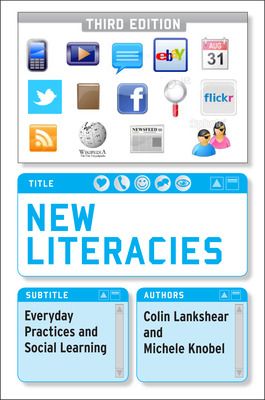New Literacies: Everyday Practices and Social Learning
Preface to the third edition
Acknowledgements
Part 1: New Literacies: Concepts and Theory
From ‘reading’ to ‘new’ literacies
Literacies: practice, Discourse, and encoded texts
‘New’ literacies: technologies and values
Part 2: New Literacies: Some Everyday Practices
New literacies and social practices of digital remixing
Blogs and wikis: participatory and collaborative literacy practices
Everyday practices of online social networking
Part 3 New Literacies and Social Learning
Social learning, ‘push’ and ‘pull’, and building platforms for collaborative learning
Social learning and new literacies in formal education
Bibliography
Name Index
Subject Index
Daniel Cassany, Literacy Researcher and Teacher, Universitat Pompeu Fabra, Barcelona, Spain
"Essential reading for those interested in new and emerging literacy practices, New Literacies maps the contours of on- and off-line participation and how it is transforming learning and communication. This book provides the necessary theoretical background and illustration of practice for a radical re-appraisal of how we think about literacy and literacy education."
Guy Merchant, Professor of Literacy in Education,Faculty of Development and Society, Sheffield Hallam University
The new edition of this popular book takes a fresh look at what it means to think of literacies as social practices. The book explores what is distinctively 'new' within a range of currently popular everyday ways of generating, communicating and negotiating meanings. Revised, updated and significantly reconceptualised throughout, the book includes:
- Closer analysis of new literacies in terms of active collaboration
- A timely discussion of using wikis and other collaborative online writing resources
- Updated and expanded accounts of digital remix and blogging practices
- An explanation of social learning and collaborative platforms for social learning
- A fresh focus on online social networking
- A new batch of discussion questions and stimulus activities
This book is essential reading for students and academics within literacy studies, cultural or communication studies and education.

